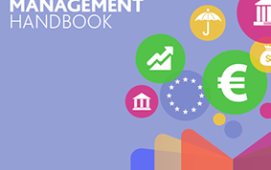Nasdaq OMX plans to build out its index provision through the acquisition of Mergent subsidiary Indxis, a vendor of index services including creation, licensing and calculation. Terms of the acquisition have not been disclosed, but the deal is described by Nasdaq OMX as a strategic move in a mission the company has been on over the past 18 months to grow its index business.
Among the key index services Nasdaq OMX will acquire from Mergent, a provider of business and financial data on publicly listed companies and parent of Indxis, are Mergent’s Dividend Achievers Indexes, an index family that tracks companies with strong long-term dividend growth. It will also acquire the Mergent index technology platform.
John Jacobs, executive vice president of Nasdaq OMX, explains: “As part of our mission to grow the index business we have added a family of indexes covering the US equity market in four subsectors this year, as well as a Sharia family of indexes, two commodities index services and a US treasury index service. We were marching forward and wanted to add dividend services and fixed income calculation. These will be provided through the acquisition of Mergent, reinforcing our position with customers and giving us another index family that we were not previously known for as well as additional technology.”
Nasdaq OMX Global Indexes has been in the index business since 1971 and has built up a wide range of index benchmarks across all asset classes. While the Mergent acquisition adds a significant slice of rules-based and transparent benchmarks for dividend and income-themed investments, Jacobs’ quest is not over. “We are always looking for acquisitions in the index space and we have taken over a few indexes from small vendors this year. There is always room to add more and we will continue to fill gaps in our index families.”
Meanwhile, Jacobs is finalising a global equity calculator that will be introduced later this quarter and will include 24,000 equity indexes covering 9,000 securities in 45 countries. The calculator is based on Nasdaq INET technology that was initially developed to build an equity trading platform.
“This will be the fastest and most scalable platform for indexes,” says Jacobs. “We already use this trading technology in 25 markets around the world. The latency of indexes will be second to none and we are able to add more very quickly. We could then put other asset classes on the INET platform or perhaps expand our fixed income indexes on the Mergent fixed income platform. We haven’t assessed that yet, but the need is to offer multiple asset classes.”
Jacobs notes consolidation in the index market, but also the presence of a smaller group of highly competitive big hitters including MSCI, S&P, Dow Jones and FTSE. He says competition is good for customers and differentiates Nasdaq OMX services saying: “We can run faster and leaner than anyone else and offer lower rates across categories. Nasdaq has always been committed to low cost and that starts with building scalable technology. We have also built many rules-based, transparent indexes and as the owner of 25 markets we can always provide more index products.”
If that is Jacobs’ view, Mergent CEO Jonathan Worrall concludes on the acquisition, saying: “This is a powerful combination of market leadership and innovation. Our industry-leading indexes and calculation business coupled with Nasdaq OMX’s track record of developing innovative and transparent portfolios of indexes will deliver better benchmarks and tools for product sponsors, investors and other market participants.”
Subscribe to our newsletter




